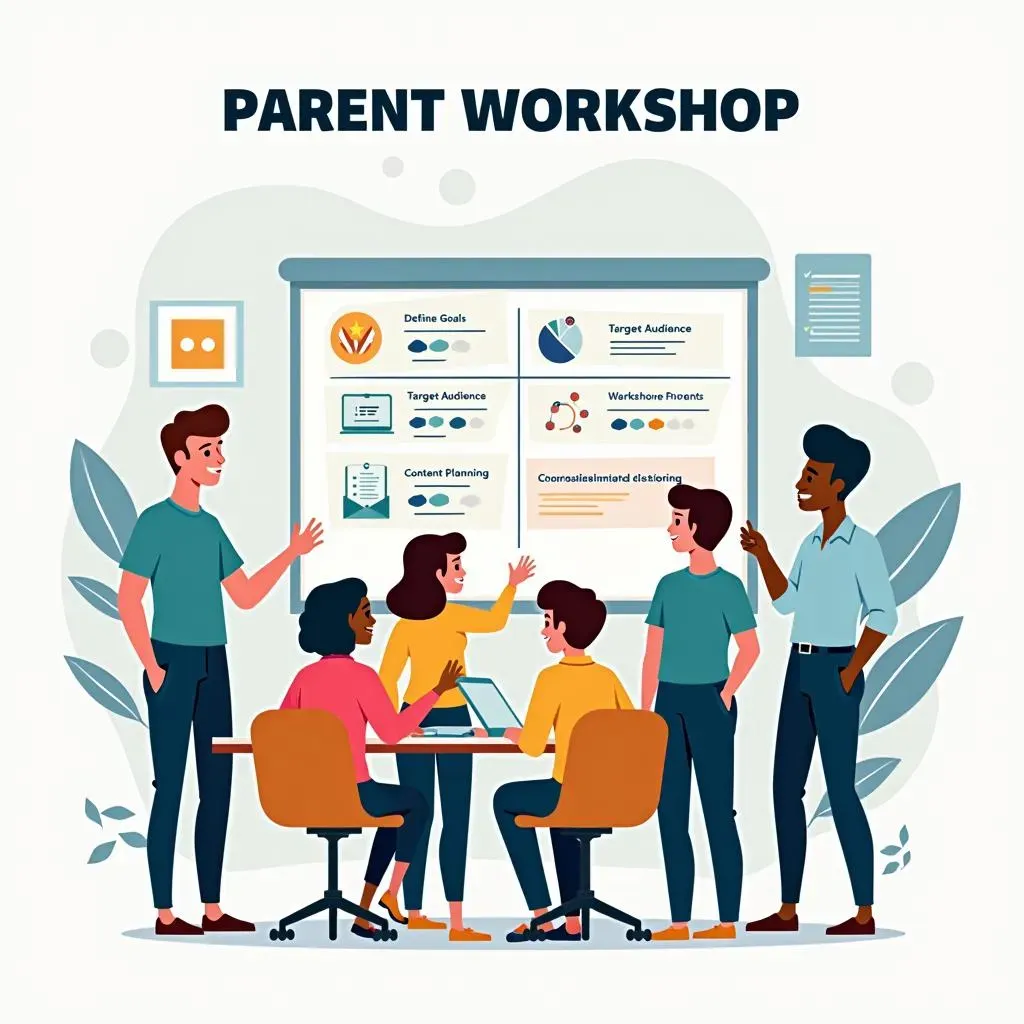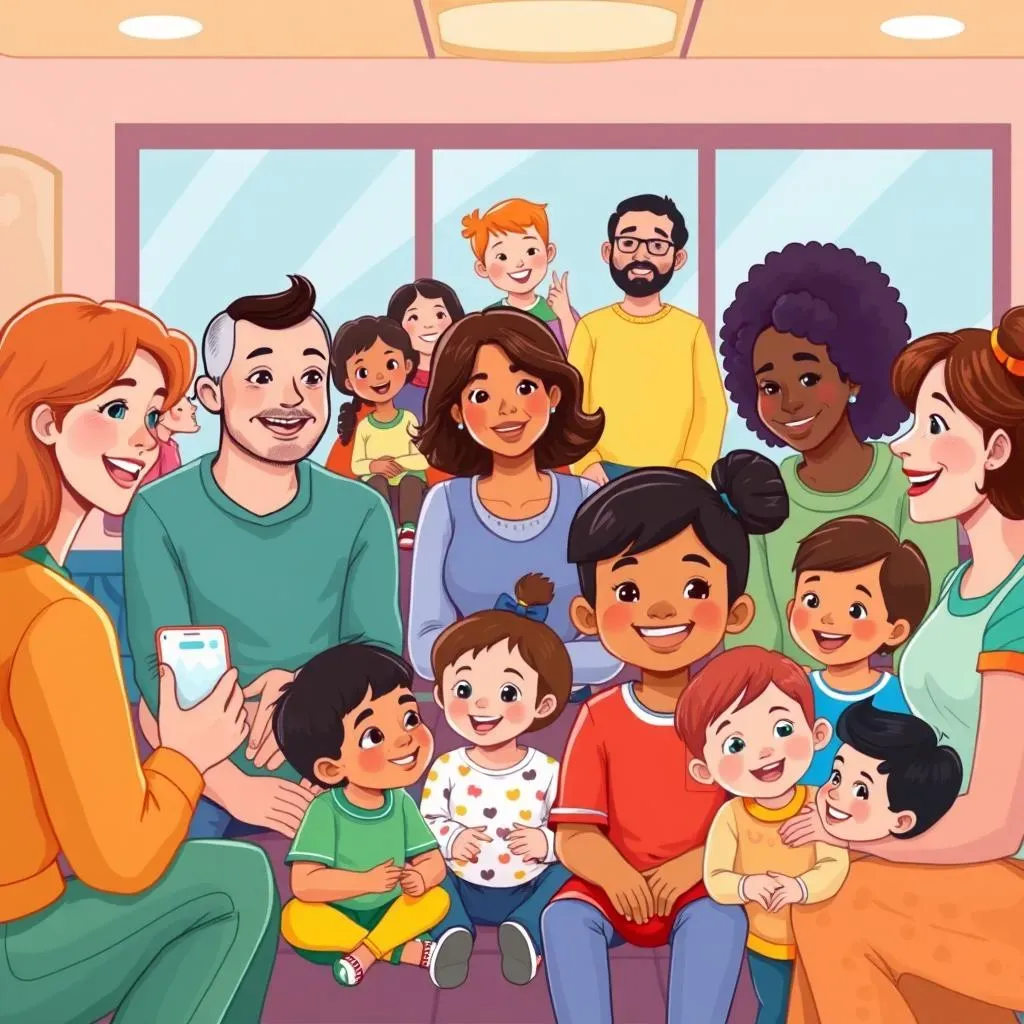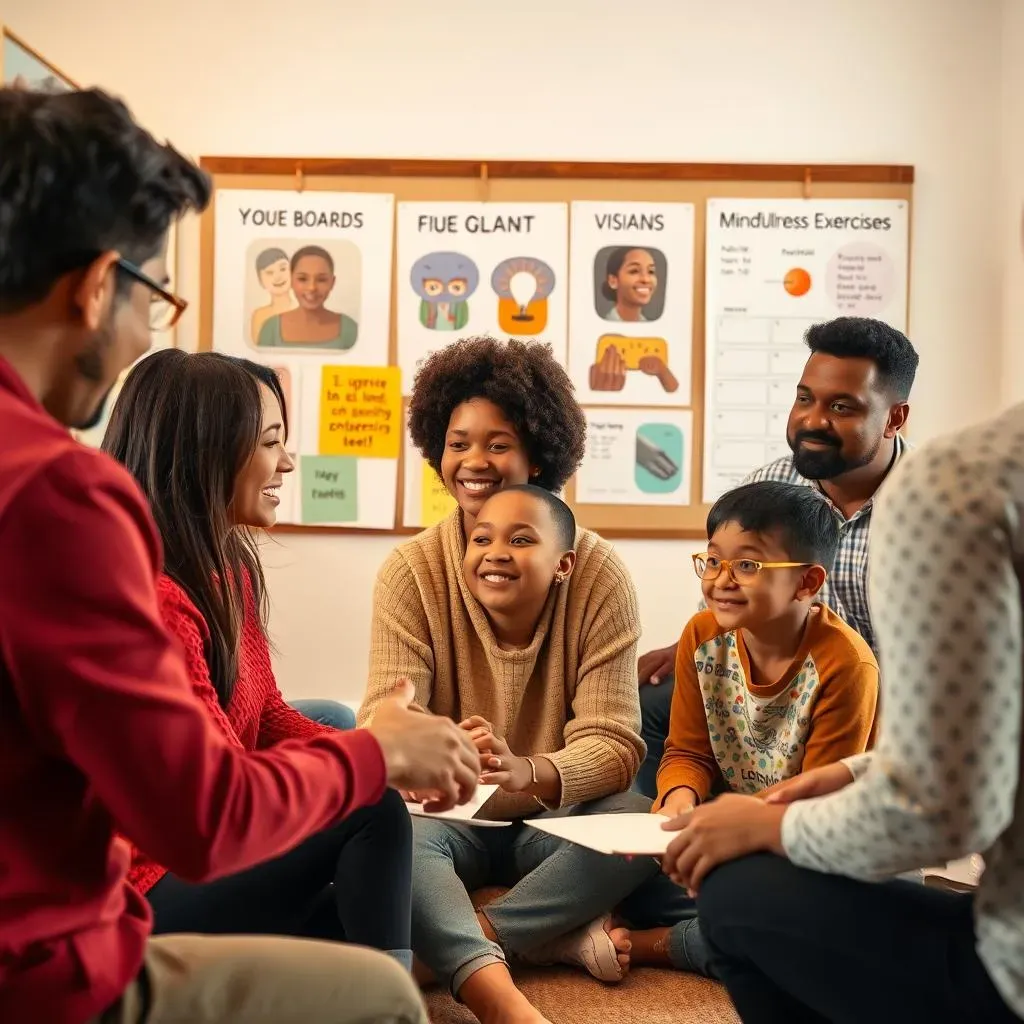Table of Contents
Ever feel like you're navigating the wild world of parenting with a map drawn by a toddler? You're not alone. Many parents crave connection, support, and, let’s be honest, a few sanity-saving strategies. That's where effective parent workshops come in. But what makes a workshop truly helpful, and where do you even start? This article is your guide to creating or participating in meaningful parent workshops. We’ll explore key considerations for organizing a workshop, diving into timeless topic ideas that resonate with parents of all ages, and offer practical activities that will make your sessions engaging and memorable. Whether you’re searching for “parent workshop examples” to spark your planning or seeking a supportive community, let's make parenting less of a solo act and more of a collaborative adventure. By the end of this, you will have the tools and inspiration to either run a workshop or find one that fits you.
Organizing a Parent Workshop: Key Considerations
Organizing a Parent Workshop: Key Considerations
Okay, so you're thinking about putting together a parent workshop? Awesome! It's like throwing a party, but instead of cake, you're serving up knowledge and support. First off, you've got to figure out the "why." What's the big goal here? Is it to tackle toddler tantrums, navigate the tricky teen years, or maybe just offer a space for parents to connect and vent? Once you've nailed the purpose, think about who you're talking to. Are these new parents, seasoned pros, or a mix of both? This will help you pick the right topics and activities. Next, you need to plan the actual content. What will you cover, and how will you keep it engaging? Don't just lecture; make it interactive. Think games, group discussions, and maybe even a little role-playing. Also, logistics are key. Where will it be? When? How will people sign up? And, importantly, how will you spread the word? The more organized you are, the smoother things will go.
Key Consideration | Why it Matters |
|---|---|
Defining Your Goals | Keeps the workshop focused and effective. |
Target Audience | Ensures the content is relevant and relatable. |
Content Planning | Keeps attendees engaged and learning. |
Logistics | Makes the workshop run smoothly and professionally. |
Timeless Parent Workshop Topic Ideas: From Toddlers to Teens
Timeless Parent Workshop Topic Ideas: From Toddlers to Teens
Alright, let's talk topics! When it comes to parent workshops, some subjects are always relevant, no matter the year or the latest parenting fad. Think about the big stages of childhood. Child development, for instance, is a goldmine. Parents are always curious about what's "normal" and how to support their kids' growth. Then, there's the whole gentle parenting approach. It's all about respect, empathy, and avoiding the power struggles that can make everyone miserable. Another evergreen topic is life skills. How do we teach our kids to handle their emotions, solve problems, and be responsible humans? These are the things that really stick with them.
Discipline is also a hot topic. It's not about punishment, but about teaching kids to make good choices. And let's be real, parent burnout is a thing. We need to talk about self-care and strategies for managing stress. Nobody can pour from an empty cup. Anger management, for both parents and kids, is also crucial. It's about learning to express feelings in healthy ways. Then we have the modern challenges of screen time and tech addiction. Parents are desperate for guidance on how to navigate this digital age. Finally, empathy and communication skills are key when we're talking about teens. It's not always easy to connect with them, but it's super important. Trust me these topics are always needed!
Topic | Why it's Timeless |
|---|---|
Child Development | Provides a baseline for understanding kids' behavior. |
Gentle Parenting | Emphasizes respect and empathy in parenting. |
Life Skills | Prepares kids for real-world challenges. |
Discipline | Focuses on teaching rather than punishing. |
Burnout and Self-Care | Addresses the well-being of parents. |
Anger Management | Promotes healthy emotional expression. |
Screen Time and Tech | Navigates challenges of the digital age. |
Empathy and Communication | Improves relationships, especially with teens. |
Practical Activities for Engaging Parent Workshops
Practical Activities for Engaging Parent Workshops
Role-Playing: Stepping into Each Other's Shoes
Okay, so you've got your topics, but how do you make them stick? One word: interaction. Role-playing is a fantastic way to do this. It’s not about putting on a dramatic performance; it's about parents stepping into different scenarios and seeing things from another perspective. For example, you could have a parent play the role of a frustrated child and another parent act as the caregiver, trying out different communication techniques. It's like a dress rehearsal for real-life parenting challenges, but in a safe and supportive space. This helps parents not just hear about strategies but actually experience them. It can be a little awkward at first, but that's part of the charm, and often where the real learning happens.
Vision Boards: Mapping Out Family Goals
Another great activity is creating vision boards. Now, this might sound a bit "woo-woo," but trust me, it works. It’s all about getting parents to think about their aspirations for their family. It's not just about achieving goals; it's about creating a shared vision and making those goals tangible. It’s about cutting out images and words that represent their family's values, dreams, and goals. This is a fun, creative way for parents to clarify their priorities and develop a roadmap for their family's future. It's also a great way to get parents to connect with each other, sharing their aspirations and finding common ground.
Activity | Why it Works |
|---|---|
Role-Playing | Encourages empathy and practical application of skills. |
Vision Boards | Clarifies family values and goals in a creative way. |
Mindfulness Exercises: Finding Calm in the Chaos
Finally, let’s not forget about the importance of mindfulness. Parenting can be incredibly stressful, and teaching parents simple mindfulness techniques can make a huge difference. This could include guided meditation, deep breathing exercises, or even just a few minutes of quiet reflection. It's about teaching parents to pause, breathe, and respond rather than react. It provides a chance for parents to unwind, de-stress, and gain a new perspective on their daily challenges. These techniques are not just for parents; they are valuable tools for the whole family, promoting emotional regulation and overall well-being. Showing parents how to find that inner peace can be one of the most valuable things you can offer.